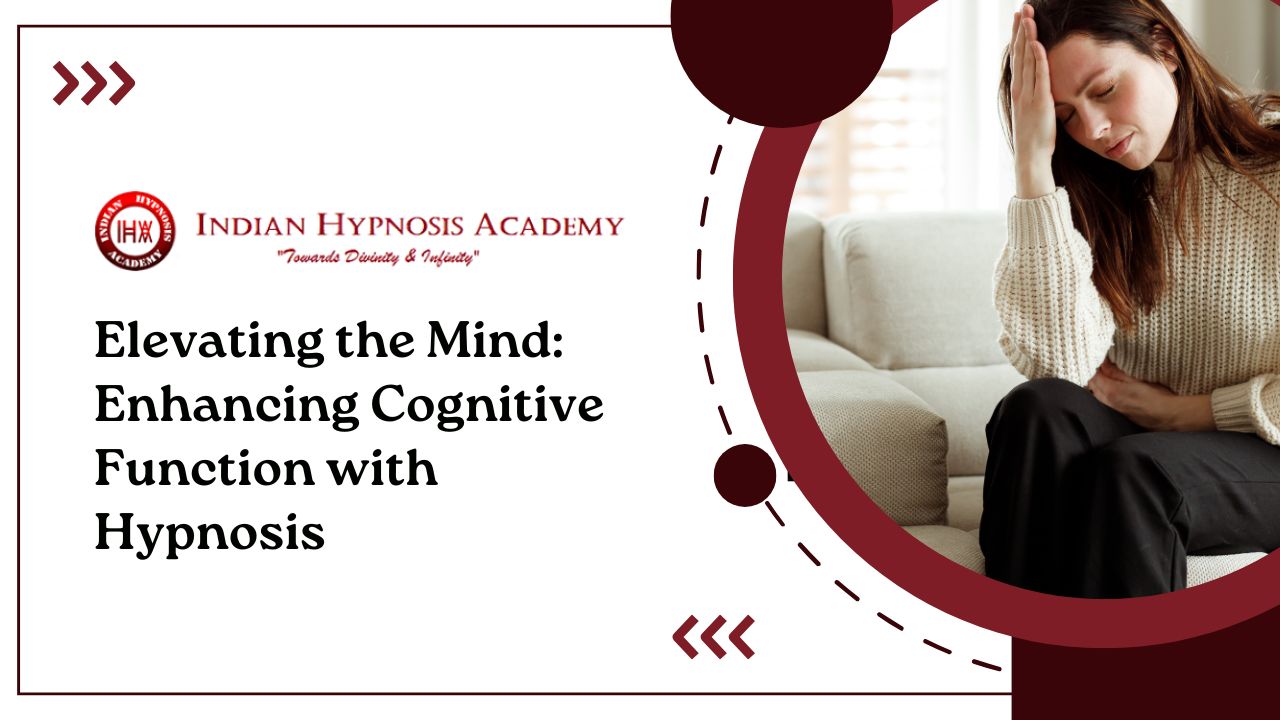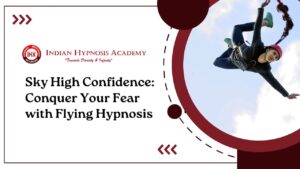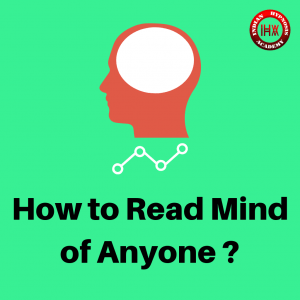Imagine unlocking the full potential of your mind with just a shift in awareness. Hypnosis, often shrouded in mystery and misconceptions, is proving to be a powerful tool for enhancing cognitive function. Whether you’re looking to improve focus, boost memory retention, or spark creativity, this age-old practice offers promising results backed by science.
As we dive into the fascinating world of hypnosis, you’ll discover how it works and why it’s gaining traction as a legitimate method for cognitive enhancement. From debunking myths to exploring real success stories, let’s embark on this journey together and uncover how you can elevate your mental performance through hypnosis. Your mind’s untapped capabilities might just be waiting for you to say “yes” to an open experience of change and growth.
What is Hypnosis?
Hypnosis is often misunderstood, cloaked in theatrical depictions and pop culture. At its core, it’s a focused state of concentration that enables individuals to tap into their subconscious mind.
During hypnosis, the subject enters a trance-like state where they become more open to suggestion. This heightened awareness allows for deeper exploration of thoughts and feelings. It’s not about losing control; rather, it’s about gaining greater insight.
People can experience various depths of hypnosis, ranging from light relaxation to profound states where significant changes can occur.
This practice has roots in ancient cultures but has evolved into a respected therapeutic technique used today by professionals across different fields. Hypnotherapy aims to facilitate positive change by harnessing this unique mental state effectively.
The Science Behind Hypnosis and Cognitive Function
Hypnosis operates on the fascinating interplay between the conscious and subconscious mind. It creates a focused state of awareness, allowing individuals to tap into deeper cognitive resources.
Neuroscience has shown that during hypnosis, brain activity alters significantly. Functional MRI scans reveal changes in areas linked to memory, attention, and problem-solving skills.
These shifts suggest improved neural communication pathways can enhance cognitive function. The brain becomes more adaptable and responsive to suggestion.
Moreover, hypnosis influences neurotransmitters like dopamine and serotonin. These chemicals play essential roles in mood regulation and mental clarity.
Research indicates that people under hypnosis often report heightened creativity and better retention of information. Such enhancements can be particularly beneficial for students or professionals looking to boost their performance.
This scientific backing reveals how harnessing hypnosis could lead to remarkable advancements in cognitive abilities over time.
Benefits of Using Hypnosis to Enhance Cognitive Function
Hypnosis is gaining recognition as a powerful tool for boosting cognitive abilities. It taps into the subconscious mind, where many of our mental blocks reside.
One significant benefit is improved focus. Hypnosis can help clear distractions, allowing you to concentrate deeply on tasks at hand. This heightened state of awareness can lead to better problem-solving skills and enhanced creativity.
Memory retention also sees an upswing with hypnotic techniques. By reinforcing neural pathways, hypnosis aids in recalling information more effectively.
Stress reduction plays a crucial role too. Lower stress levels contribute to sharper thinking and decision-making capabilities.
Additionally, hypnosis fosters a positive mindset, which can increase motivation and productivity. When your mind is aligned with your goals, reaching them becomes easier than ever before.
Different Techniques and Methods of Hypnosis for Cognitive Enhancement
Hypnosis offers a variety of techniques designed to enhance cognitive function. One popular method is guided imagery, where individuals visualize specific scenarios to stimulate mental clarity and creativity.
Another effective technique is progressive relaxation. This involves systematically relaxing different muscle groups while focusing on calming thoughts, promoting a state of heightened awareness that can boost problem-solving skills.
Conversational hypnosis utilizes everyday dialogue patterns to help access the subconscious mind without overt suggestion. It’s subtle yet powerful for enhancing focus and memory retention.
Self-hypnosis empowers individuals to take control over their cognitive enhancement journey. By practicing visualization and affirmations regularly, one can train the mind for better concentration and productivity.
Group hypnosis sessions foster collective energy, creating a supportive environment that often amplifies individual outcomes through shared experiences. Each method holds unique potential, making it essential to find what resonates personally for optimal results in cognitive improvement.
Case Studies and Success Stories
Real-life experiences showcase the power of hypnosis in enhancing cognitive function. For instance, a student struggling with exam anxiety found remarkable success after just a few sessions. Through targeted visualizations and relaxation techniques, she improved her focus and memory retention.
Another compelling story comes from a corporate professional who faced chronic stress affecting his productivity. After engaging with a certified hypnotherapist, he learned to tap into his subconscious mind. This transformation led to sharper decision-making skills and increased creativity at work.
Even athletes have turned to hypnosis for an edge in performance. A competitive swimmer reported significant gains in concentration during races after incorporating visualization exercises into his training routine.
These examples illustrate that hypnosis is not merely theoretical; it produces tangible results across various fields, empowering individuals to unlock their full cognitive potential.
Debunking Common Myths About Hypnosis
Many people hold misconceptions about hypnosis. One common myth is that it’s a form of mind control. In reality, individuals cannot be hypnotized against their will. They remain fully aware and in control.
Another prevalent belief is that hypnosis can make someone reveal secrets or act against their morals. This simply isn’t true. Hypnosis encourages relaxation and focus but does not compromise personal ethics.
Some think only certain people can be hypnotized, implying it’s a rare skill reserved for the few. However, almost anyone with an open mind can experience its benefits when guided properly.
There’s the idea that hypnosis leads to sleep-like states where nothing happens. In fact, many report heightened awareness during sessions—often feeling more connected than ever before.
Understanding these myths helps demystify hypnosis and paves the way for exploring its potential power in cognitive enhancement.
How to Incorporate Hypnosis into Your Daily Routine?
Integrating hypnosis into your daily life can be a transformative experience. Start with short sessions, perhaps just 10 to 15 minutes each day. Find a quiet space where you won’t be disturbed.
Consider using guided audio tracks or apps designed for beginners. These resources often provide structured suggestions that make the process smoother and more effective.
Set specific goals before each session. Whether it’s improving focus, reducing stress, or enhancing creativity, having clear objectives helps guide your subconscious mind.
Incorporate hypnosis during routine activities like commuting or winding down before bed. This approach allows you to maximize time while still reaping benefits.
Keep a journal of your experiences and progress. Documenting thoughts and feelings enhances self-reflection and reinforces positive changes in cognitive function over time.
Conclusion
As we explore the realm of cognitive enhancement through hypnosis, it becomes clear that this technique offers a unique approach to unlocking our mental potential. By tapping into the subconscious mind, individuals can cultivate sharper focus, improved memory retention, and enhanced problem-solving skills.
The science backing hypnosis demonstrates its efficacy in promoting cognitive function. With various methods available—from self-hypnosis to guided sessions—everyone has the opportunity to find what works best for them. The success stories shared by those who have embraced hypnosis highlight its transformative power.
While some myths about hypnosis linger, understanding its true nature dispels any reservations. Incorporating these techniques into daily routines may take time and practice but is well worth the effort for those seeking mental clarity and resilience.
Exploring how hypnosis can elevate your mind may be just the journey you need toward greater cognitive function and personal growth. Taking that initial step could lead you down an enriching path filled with unexpected insights and improvements in everyday life.



